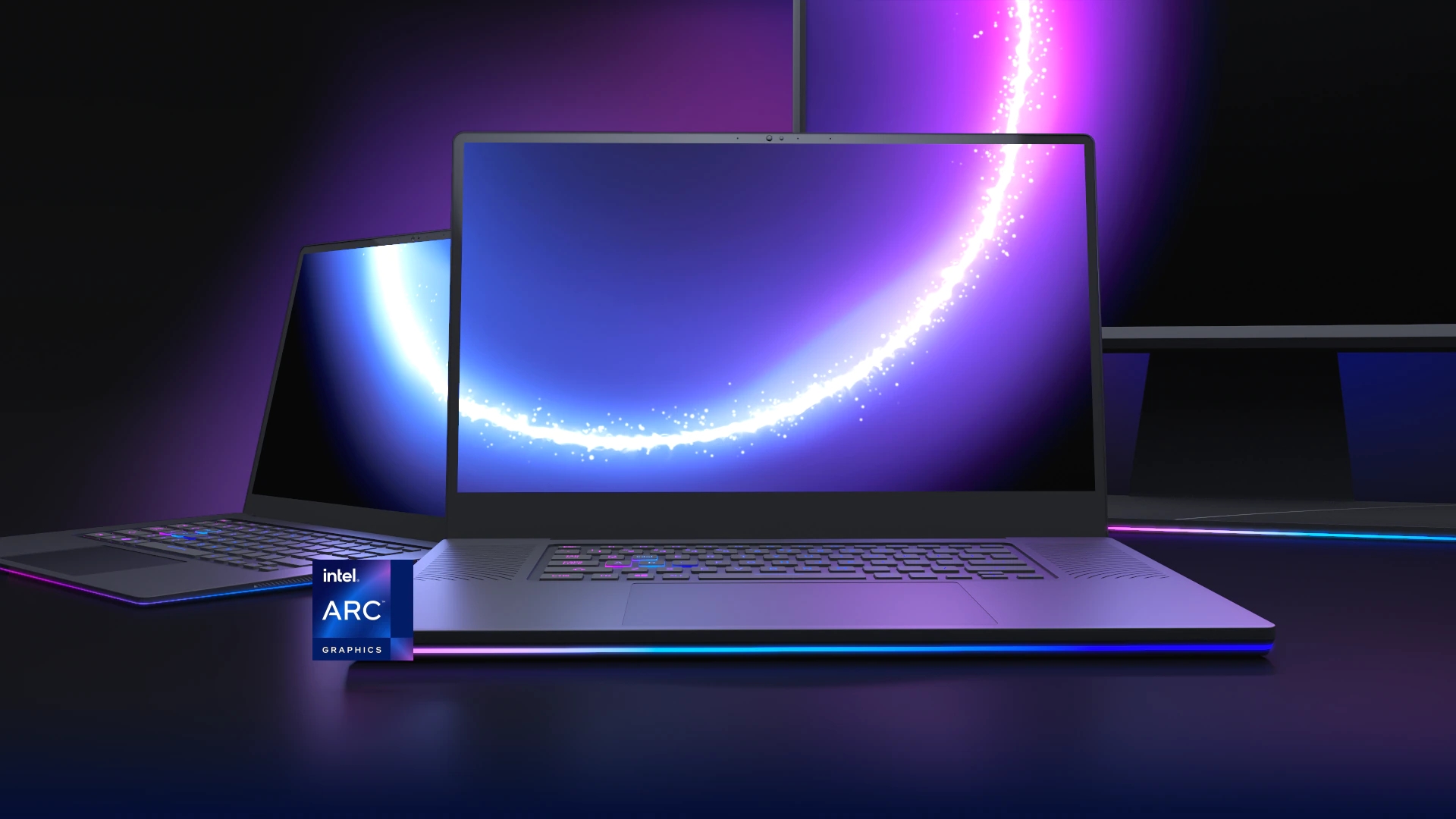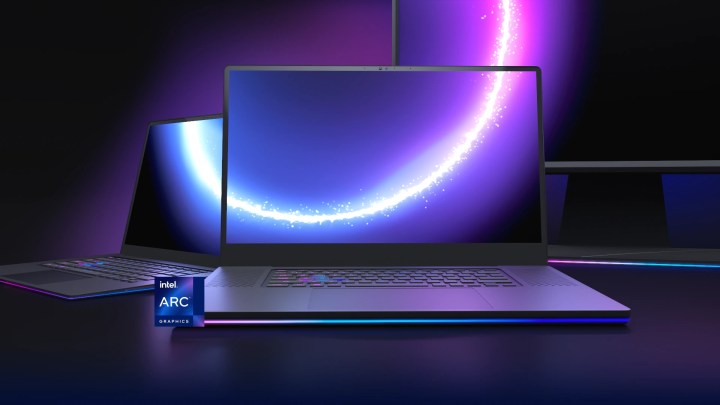Intel Arc A770M and A550M compete with Nvidia in benchmarks
Intel's upcoming flagship GPUs, the Arc A770M, was just benchmarked inside a gaming laptop. The mid-range A550M was also put to the test. What's the verdict?

Intel Arc Alchemist still has a few cards up its sleeves. We’ve seen some of the entry-level lineup so far, both in mobility and desktop forms, but we’ve yet to see much of the flagships. Today, that changes — synthetic benchmarks of the Arc A770M and the A550M have just leaked, giving us a glimpse of what these graphics cards can do in a gaming laptop.
Much like before, Intel Arc Alchemist did a decent job in benchmarks, trading blows with Nvidia’s entry-to-mid-range GPUs. Now, the question is: Can it do equally well in real-world scenarios?
Fire Strike Extreme
Intel Arc 770M pic.twitter.com/lZJtSa7giy
— _rogame (@_rogame) July 11, 2022
Today’s benchmarks were delivered by @_rogame on Twitter who served up some 3DMark Fire Strike results for Intel Arc. The flagship Arc A770M was found inside the same Clevo gaming laptop we’ve previously reported on. It came paired with an Intel Core i7-12700H CPU. The A550M was part of an Intel reference laptop that Wccftech speculates could be one of the new NUC X15 Alder Country designs. These laptops are going to feature the same Core i7-12700H CPU and an up to Intel Arc A730M GPU.
For the Arc A770M benchmark, the leaker used a test version of Intel’s drivers (version 9999) while the Arc A550M was using the official driver, but an older version of it — it ran version 1726, but the current version is 1734. As for the scores, the Arc A770M managed to hit 13,244 points in the 3DMark Fire Strike Extreme graphics test. This puts it around the same level as the Nvidia GeForce RTX 3070 in its mobile version, but the performance of the Nvidia GPU varies based on its TGP — there are several variants out there.
The Arc A550M was tested in 3DMark Time Spy, getting 6,017 points. However, these benchmark results are difficult to trust. Not only is it simply a synthetic test, but the Arc A550M was also running Intel’s Advanced Performance Optimization (APO) feature that boosts the results of synthetic benchmarks by up to 15%. We also don’t know whether the Arc A770M received the same treatment and was running APO or not.
 Intel
IntelThis brings us to the common problem we’ve seen with these Intel Arc benchmarks — the graphics cards seemingly do well in tests, but they fail to impress in gaming. One example of this is the Arc A730M, recently thoroughly tested by a leaker on the Chinese social media platform Weibo. The Arc A730M was able to compete with Nvidia’s RTX 3070 when tested in benchmarks, but it fell painfully flat when the leaker took it out for a spin in a gaming scenario. Unfortunately, today’s leaks don’t deliver any new information as to the gaming capabilities of the cards — the leaker focused on benchmarking.
Intel itself has recently released the official benchmark results for the A730M and the A770M, but those results were skewed in Intel’s favor due to various factors, such as the aforementioned TGP of the GPU in question. Intel compared itself to Nvidia, but the laptops that were used to compete against Intel were not of the same quality as those used for the Intel Arc cards. As such, these benchmarks are still quite irrelevant.
Intel Arc Alchemist has had a slow and rocky start so far. The laptops with the A770M and the A550M are still nowhere to be seen in any major quantities. Therefore, it might be a while before we can get our hands on some trustworthy benchmarks of Intel’s best GPUs. On the other hand, that could be a good thing for Intel at this point — it gives it a bit more time to optimize the drivers and deliver a more impressive product than what we’ve seen so far.

 Hollif
Hollif 






























